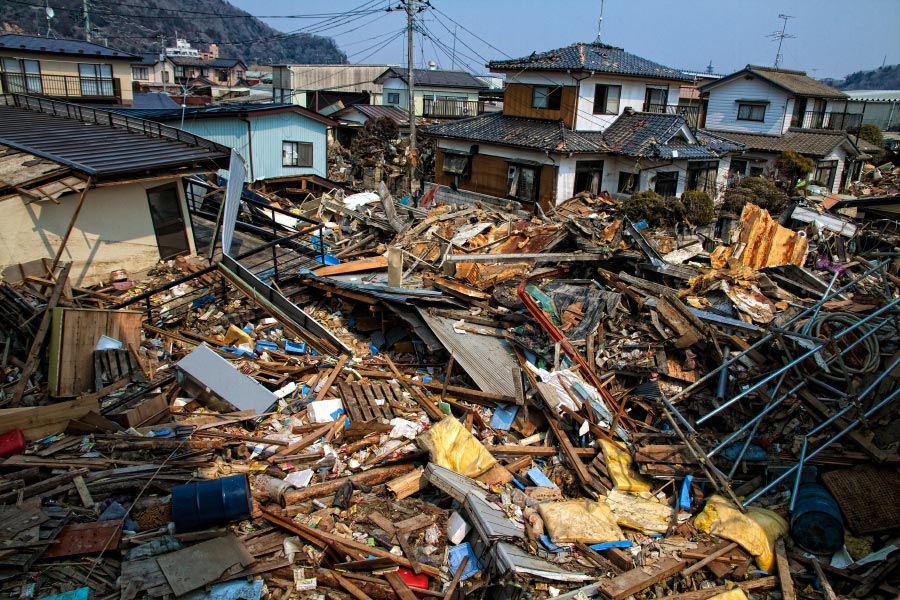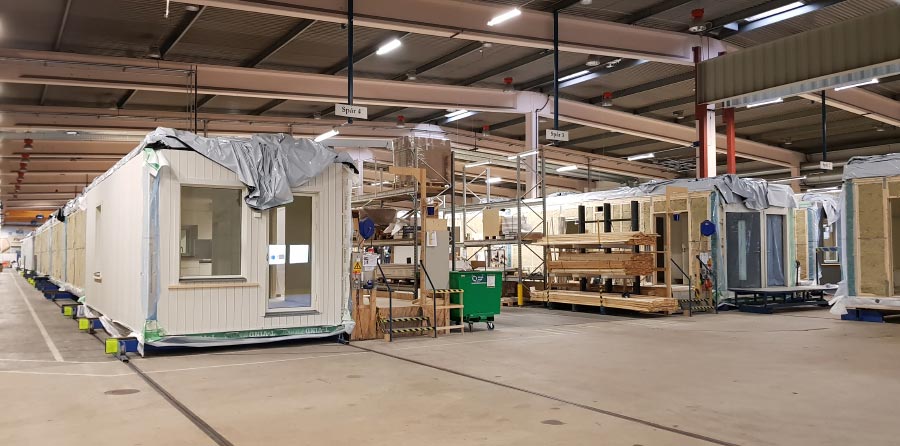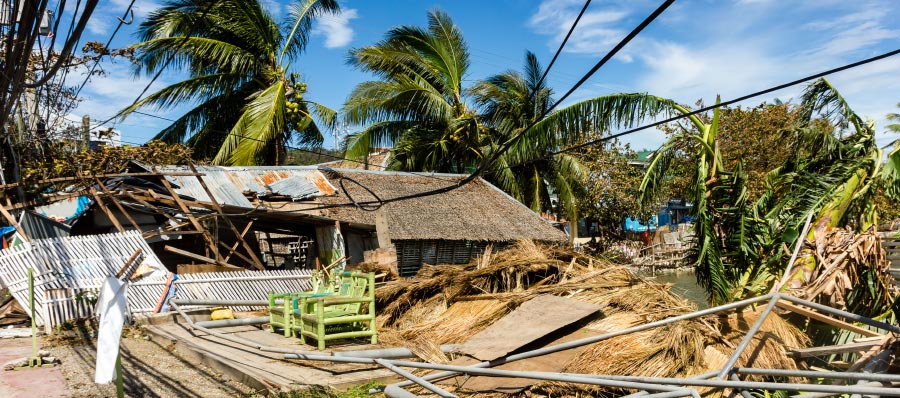Asia-Pacific Research Network for Resilient Affordable Housing
Faculty of Engineering and Information Technology
We aim to develop a coordinated approach for the delivery of affordable and resilient prefabricated housing throughout the Asia-Pacific region.
The Asia-Pacific Research Network for Resilient Affordable Housing brings together leading thinkers from the prefabrication industry, building product manufacturers and government agencies, matching them with leading research expertise from the University of Melbourne and its partner research institutions throughout the Asia Pacific region. This will facilitate the rapid development of new prefabricated building materials and systems, which are low cost, lighter, reusable, durable, faster to manufacture and assemble, have greater energy efficiency and resilience under extreme natural disasters.
Objectives
- To bring together leading thinkers from the prefabrication industry, building product manufacturers and government agencies, and match them with leading research expertise from the University of Melbourne and its partner research institutions throughout the Asia Pacific region.
- To develop strategies for a coordinated effort to provide resilient housing and social infrastructure to facilitate rapid recovery from humanitarian events.
- To promote the rapid development of materials and off-site manufacturing processes not possible in traditional construction. Innovative solutions are to be low cost, lightweight, reusable, durable, faster to manufacture and assemble, and have greater energy efficiency and resilience under extreme natural disasters.
- Identify and address the knowledge gap hampering the development of new materials and systems suitable for housing.
- To produce a design platform for prefab construction of high international standing to strategically position industry and research institutions in the region at the cutting edge world-wide.
Background
With many natural disasters such as earthquakes, cyclones, bush fires and tsunamis destroying human habitats around the world, post-disaster housing reconstruction has become a critical topic of discussion for practitioners such as engineers and architects, as well as the general public. The current practice of post-disaster reconstruction consists of various approaches that carry affected home owners from temporary shelters to permanent housing.

While temporary shelters may be provided within a matter of days as immediate disaster relief, permanent housing can take years to complete. However, time is critical, as affected communities will need to restore their livelihoods back to normal as soon as possible. Prefabricated construction has the potential to drastically improve the time taken to provide permanent housing from years to a matter of weeks. Due to this extreme time efficiency, which is an inherent characteristic of modular construction, it can be adopted as a very desirable strategy for post-disaster housing reconstruction.

Our research activities will lead to new prefabricated modular structures which can provide a more time efficient solution suitable for different parts of the world. The outcomes of the research will provide input into guidelines for post-disaster housing reconstruction to be published by various aid organisations. The outcomes and knowledge gained from our research activities will be applied in Australia and globally. Growing Asian nations will seek out Australian finished products, componentry, materials and expertise leading to an increase in exports.
This research program is collaborating with the ARC Centre for Advanced Manufacturing of Prefabricated Housing.
We will develop programs to achieve our goals of open exchange of information, sharing of resources, cross-disciplinary research, and collaborative approaches to research.
Workshops
Asia-Pacific Research Network for Resilient Affordable Housing will hold two international workshops per year. Each workshop will promote a theme such as composite lightweight materials and systems, automated off-site manufacturing, mass customisation and complex systems thinking, which are essential components of prefabricated affordable housing. The topic of off-site manufacturing techniques and innovative financing models for affordable housing in developing countries will be explored. Workshops will be held in Australia and throughout the Asia-Pacific network.
Research projects
Our role will also include facilitating joint research projects among the network partners. These joint research projects are intended for industry partners and researchers from member countries to identify industry requirements and opportunities for innovating new materials and building systems, which are suitable for the local conditions in each country.
Annual conference
The Annual Conference will showcase research fostered by Asia-Pacific Research Network for Resilient Affordable Housing (APRAH). The first APRAH annual conference will be held in 2018 with a theme focusing on current issues experienced in the residential building industry including housing affordability in the Asia-Pacific region. This initiative will encourage an open exchange of information across disciplinary, organisational, institutional and geographical boundaries.
Asia-Pacific Research Network for Resilient Affordable Housing is comprised of research organisations and businesses from throughout the Asia-Pacific region.
| Organisation | Country | Organisation or business | Representative |
|---|---|---|---|
| University of Melbourne | Australia | Research organisation | Prof Tuan Ngo |
| Institute for Building Science and Technologies | Vietnam | Research organisation | Dr Nguyen Hong Hai |
| Institute for Civil Engineering, National University of Civil Engineering | Vietnam | Research organisation and business | Dr Pham Thanh Tung |
| Buro Happold Engineering | India | Business | Mr Anil Hira |
| Civil and Structural Engineering Consultants Ltd | Sri Lanka | Business | Eng Shiromal Fernando |
| Benjamin Gideon & Associates | Indonesia | Research organisation and business | Prof Benjamin Lumantarna |
| Khon Kaen University | Thailand | Research organisation | Prof Prinya Chindaprasirt |
| Shuimu Qinghua Architecture Ltd | China | Business | Mr Ji Shuyuan |
APRAH established under funding from Regional Collaborations Programme
12 December 2017
The Hon Craig Laundy MP, Assistant Minister for Industry, Innovation and Science, announced on 11 October 2017 that new funding had been granted to Australia-led collaborative projects to address the Asia-Pacific affordable housing crisis, tackle hepatitis B and monitor the impact of coastal climate changes. The Regional Collaborations Programme is designed to build strong linkages between Australian researchers and businesses and their Asia-Pacific regional counterparts by supporting multi-partner science, research and innovation collaboration activities that address issues of significance to our nation and the region.
The Asia-Pacific Research Network for Affordable Resilient Housing (APRAH) was awarded $210k of Government funding to develop a research network on sustainable materials and prefabricated systems to address the housing crisis in the region through resilient affordable housing. The funding is provided by the Australian Academy of Science, on behalf of the Department of Industry, Innovation and Science. The Regional Collaborations Programme is supported by the Australian Government under the National Innovation and Science Agenda.
APRAH workshop: Responding to humanitarian events
12 December 2017

APRAH will be holding a workshop on Friday 2 February 2018. The theme of the workshop will be Responding to humanitarian events: semi-permanent housing solutions and social infrastructure. The workshop will focus on how social infrastructure and housing solutions can be delivered by drawing on local skills and manufacturing capability throughout the Asia-Pacific region. This will include an exploration of how an integrated prefab network will be mobilised to effectively respond to a humanitarian event. The event will be held at The University of Melbourne and will include presentations by APRAH’s collaborating organisations and partners.

